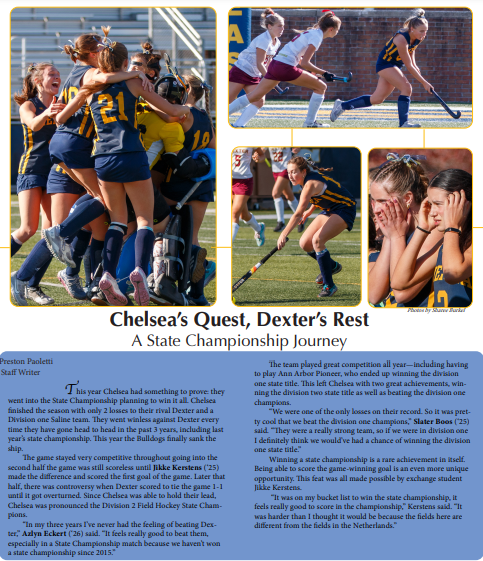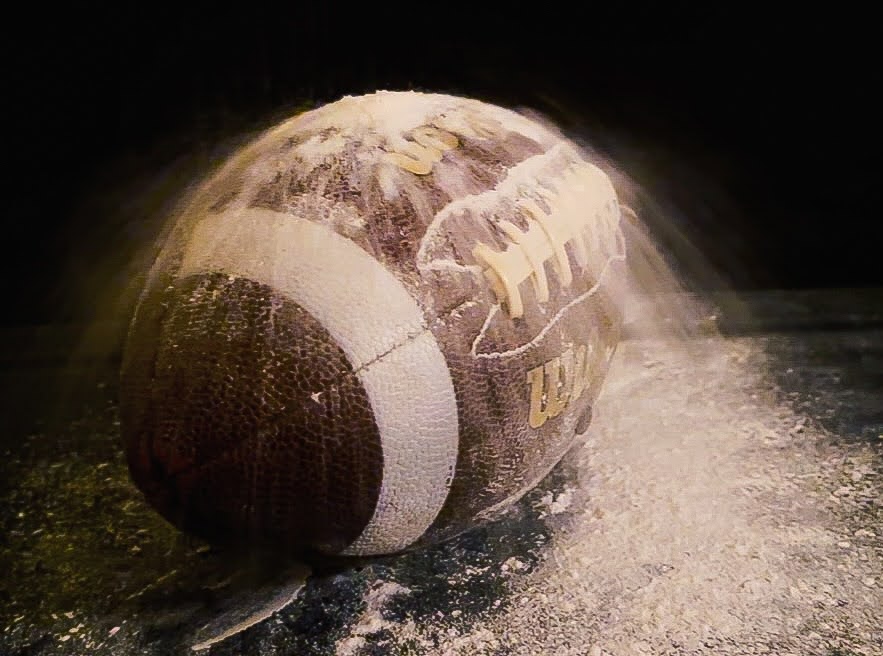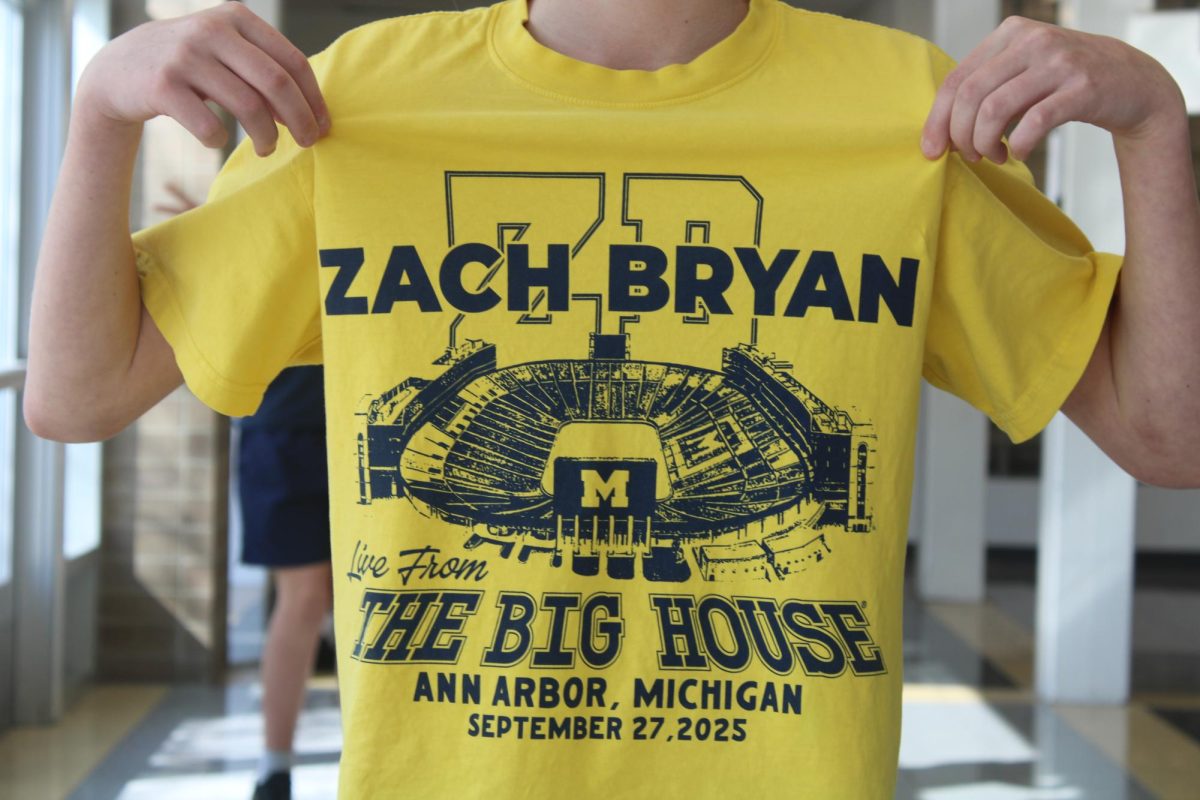This opinion article has been updated to reflect feedback received from readers. In response to concerns raised, a portion of the introduction has been revised to ensure clarity surrounding the role of the cheerleaders at CHS. The intention of this article is not to discredit nor diminish the accomplishments of the cheer program or the football team. Rather, it aims to spark discussion about broader societal trends regarding gender dynamics and the recognition of women’s sports. The Bleu Print stands by the importance of thoughtful dialogue on these critical issues and remains committed to providing a platform for diverse perspectives.
The stereotypical cheerleader-football player dynamic has been portrayed in countless movies and shows; only recently did I really realize the extent to which it has been playing out in Chelsea as well. This fall, cheerleaders have been released 30 minutes early from school to set the table for the football team dinner while the boys remain in class.
In our school’s culture, we see a troubling juxtaposition: while the SEC champion cheerleaders assist with the preparation of the football team dinner, celebrating their efforts, the triumph of our field hockey team—who recently won their first state championship— elicits a disproportionately small reaction. This disparity speaks volumes about the ingrained attitudes toward women’s sports and their value in our society. It strengthens a power dynamic and pushes stereotypes about both the roles and responsibilities of women, as well as the superiority of male-dominated sports. My argument is not to say that football doesn’t deserve the attention it receives, but it is indisputably disproportionate to the support that other sports–like field hockey–receive.
This disproportionate attention is not an isolated issue at our school but reflects a larger, cultural trend. With its massive fan base and longstanding tradition, football occupies a unique and powerful place in American sports culture. Yet within this environment, the treatment of women’s sports is often brought down to a secondary, trivialized status. One example of this is the tradition of “Powderpuff” football—an event meant to involve girls in the sport of football, but one that carries with it a problematic history of diminishing the seriousness and athleticism of women’s involvement in sports.
“Powderpuff,” let’s think about this word and its origin. It is a reference to cosmetic powder; worn by some women, but it really has nothing to do with football. In my opinion, it only serves to delegitimize the act of females playing a heavily male-dominated sport. The name powderpuff implies humor, but humor in the form of mockery; the use of “powder” (associated with femininity and beauty) with “puff” (implying something lightweight or insubstantial) reinforces stereotypes about women in sports. It forms an image in my mind of girls, vain and heavily makeuped, unserious about their sport. I can’t think of a way in which this name can be interpreted that doesn’t carry underlying condescension. Many would make the argument, however, that Powderpuff isn’t supposed to be serious, it’s supposed to be a once-a-year game of entertainment, and poking fun at it isn’t a big deal. If that were truly the case, then we wouldn’t call the very similar event of boys playing volleyball “extreme volleyball”. These names get to the root of how so many people view women’s sports in relation to men’s. Men play with intensity, grit, and passion; women, on the other hand, are much more easily seen as superficial, just there for kicks or popularity.
For so long in this nation’s history, we’ve limited women’s acceptable realm of life, forming an idea that sports—building muscle, being aggressive, celebrating successes—were inherently unfeminine characteristics. While we now know that when a woman runs, her uterus won’t fall out, those types of incredibly antiquated ideologies have not disappeared; they simply exist in an accepted way.
It’s a societal issue, a messaging ingrained in our language. It’s entrenched in tradition, behind solid walls of “we’ve always done this” and “no one’s had a problem with it before”. However, that doesn’t give us the right to simply accept it. It may have no impact on you personally, but it shapes the rhetoric about how we talk about women in sports. It’s not the most pressing issue in this world, but that doesn’t mean we shouldn’t try to solve it. Changing the name, “Powderpuff” may feel inconsequential, but it would hurt nobody. However, it has the potential to make even a few girls feel like their intensity is valid and respected. Until we stop viewing sports through the lens of gender, we’ll continue to miss out on the spirit of competition that sports should foster for everyone, no matter their gender.
In alignment with the spirit of this article, The Bleu Print invites readers to explore our coverage of the State championship-winning field hockey program in the print edition (previewed below) and the SEC champion competitive cheer team through the links provided here and here.















K Walker • Apr 5, 2025 at 3:22 pm
Looks like Coach Dean chose to orchestrate a self promoting podcast and answered my question. Go find his recent podcast hosted by Chris Merendino and go to around minute 30.
“Girls want to date a provider. Somebody that can protect them and make them feel loved and cared for. “ All things that he stated tough strong football players can provide.
Heaven forbid A GIRL is raised to believe she can provide for and protect herself or even her family. This guy is out to lunch.
K Walker • Mar 9, 2025 at 12:40 pm
I think it would be beneficial if Coach Dean and Coach Motsinger were given an opportunity to make a statement on this very important subject. Has anyone from the Bleu Print reached out to them for a comment?
A Beaverhousen • Dec 11, 2024 at 3:53 pm
The inaccuracy of this article is beyond upsetting. In an article that is supposed to sound pro feminism, it discriminates against the program and what the girls in the Cheerleading program have accomplished. This is the perfect example of misinformation and misogyny in so many levels. I am a journalist and as such we have a job, a very crucial job: to inform, to tell the truth, to raise the voices of the unheard. Words can cut even deeper than sharpen objects. Please do your homework and for God’s sake, Justify your work both in MS Word and in real life.
K Walker • Jan 2, 2025 at 12:06 pm
A Beaverhousen, As a fellow journalist, I’m sure you will agree on the importance of opinion pieces. Writing op-eds takes a lot of courage and can carry the risk of perceived bias from readers. Ms. Demea is a young and upcoming journalist, and as journalists, I’m sure there is nothing we would like more than for her to learn the importance of reporting facts and writing opinions. The world needs great journalists with big voices, courage, and conviction. Ms. Demea seems to be on her way, if she chooses this path.
I don’t believe that Ms. Demea wrote this article to discriminate against the football or cheerleading programs. I believe her point was to shine a light on the “ingrained attitudes towards women’s sports and their value in our society.” The point Ms. Demea makes is not one to disparage the cheerleading program, but to suggest that equal treatment is deserved between male/ female athletes. That is not misogynistic.
I appreciate the conversation that Ms. Demea started. I hope that the Chelsea School District, varsity football coach, and varsity cheerleading coach have been nothing but supportive and that positive change will take place.
G Adler • Feb 17, 2025 at 8:15 pm
I agree with K Walker. This article made no attempt to discriminate against the Cheer Team. They offered up a conversation starter about misogyny in all sports.
There should be comradery with Cheer and Football but it should not be at the expense of Cheer. Cheer is not there to serve Football. Yes they do support but they are equals, not subservient.
You may want to do some reflecting on why this article bothers you so, A Beaverhousen. There’s a bigger issue here.